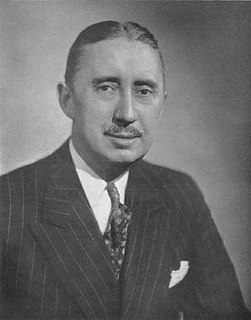A Quote by Charlotte Perkins Gilman
The stony-minded orthodox were right in fearing the first movement of new knowledge and free thought. It has gone on, and will go on, irresistibly, until some day we shall have no respect for an alleged "truth" which cannot stand the full blaze of knowledge, the full force of active thought.
Related Quotes
You haven't changed. You may say: 'I'm full of love, I'm full of truth, I'm full of knowledge, I'm full of wisdom.' I say: 'That's all nonsense. Do you behave? Are you free of fear? Are you free of ambition, greed, envy and the desire to achieve success in every field? If not, you are just playing a game. You are not serious.'
The prophet Isaiah ... points out what will be the cause of this change; for he says that hatred, quarrel, and fighting will come to an end, because men will have a true knowledge of God. "They shall not hurt nor destroy in all my holy mountain: for the earth shall be full of the knowledge of the Lord, as the waters which cover the sea" (Isa. xi. ver. 9) Note it.
If the genius of invention were to reveal to-morrow the secret of immortality, of eternal beauty and youth, for which all humanity is aching, the same inexorable agents which prevent a mass from changing suddenly its velocity would likewise resist the force of the new knowledge until time gradually modifies human thought.
No one has yet discovered or ever shall discover what God is in His nature and essence... we shall, in time to come, 'know as we are known' (I Cor 13:12). But for the present what reaches us is a scant emanation, as it were a small beam from a great light - which means that any one who 'knew' God or whose 'knowledge' of Him has been attested to in the Bible, has a manifestly more brilliant knowledge than others not equally illuminated. This superiority was reckoned knowledge in the full sense, not because it really was so, but by the contrast of relative strengths.
Our Creator has put in us hungers that this earth can- not satisfy. We cannot be completely self-contained on earth. Physical sense cannot give us a full life, nor can knowledge alone. No life is full unless it is linked to some- thing that goes on after we are dead.... If we have nothing more to live for than just to get ahead in a competitive system, then democracy will go down before other philosophies.
For successful education there must always be a certain freshness in the knowledge dealt with. It must be either new in itself or invested with some novelty of application to the new world of new times. Knowledge does not keep any better than fish. You may be dealing with knowledge of the old species, with some old truth; but somehow it must come to the students, as it were, just drawn out of the sea and with the freshness of its immediate importance.
Even those who have desired to work out a completely positive philosophy have been philosophers only to the extent that, at the same time, they have refused the right to install themselves in absolute knowledge. They taught not this knowledge, but its becoming in us, not the absolute but, at most, our absolute relation to it, as Kierkegaard said. What makes a philosopher is the movement which leads back without ceasing from knowledge to ignorance, from ignorance to knowledge, and a kind of rest in this movement.
In scientific thought, the concept functions all the better for being cut off from all background images. In its full exercise, the scientific concept is free from all the delays of its genetic evolution, an evolution which is consequently explained by simple psychology. The virility of knowledge increases with each conquest of the constructive abstraction.







































